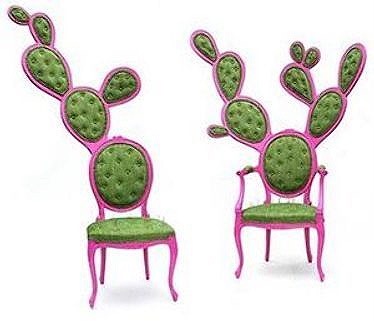ArmchairPhilosophy

" … nobody ever really pays the slightest attention to philosophers …"
I hold the opinion that there's no such thing as a comfortable chair and that the belief that there could be such a thing has become a burden to mankind. I freely admit that I possess a deep aversion to furniture in general, particularly to the purchase of it in any form, though I do allow inheritance as the sole proper means for acquiring it. The Muse and I own a remarkably mismatched furniture inventory. Different ages, styles, colors, and concepts combine to exude an otherwise unattainable Early Undergraduate ambiance. Each chair stands as a unique form of torture, with each most certainly its own form of torture. Oh, one might just seem comfortable upon first sit, but try staying put for a half hour. I simply cannot. I can perch for a few fleeting moments before something seems terribly awry and I simply must move myself somewhere else.
I've grown to prefer sprawling on the floor when I watch television. I can hardly see the screen from an upright position, let along enjoy the content when so contorted. I believe that the human body was not intended or designed to sit for longer than fifteen minutes at a time and needs to either be up and moving around or sprawled in some more freeform fashion than any chair ever designed could ever allow. The lowly beanbag chair might be the closest any furniture designer ever came to producing a chair suitable for actually sitting, if one can properly call the position that invention forces one to assume a 'sitting position'. A beanbag encourages a sort of sprawl rather than a classic sit, especially when trying to get into or back out of it. Within about fifteen minutes of mounting one, you're sprawled, anyway.
People love to complain about the inherent discomfort of airplane seats, apparently without deeply considering what might constitute a comfortable seat, and whether they'd ever—on land, sea or air—actually sat in one for more than fifteen minutes without discovering its underlying discomfort within. The difficulty does not, I insist, lie in the seat but within the sitter, an entity neither uniform across populations nor within any single individual. Sitting seems the most context-sensitive human activity. Indeed, to sit alters the nature of the sitter, and the longer one sits, the more altered that sitter becomes. Yet chairs by nature remain fixed entities, their adaptive range severely limited by the nature of materials. Sure, Lay-Z-Boy recliners make a half-assed attempt to provide a limited range of adaptability, and modern office chairs seem to provide so many adjustment possibilities that nobody could ever align the settings to produce even a marginally comfortable sit, but any satisfaction seems fleeting in ways that simply sprawling on the floor never becomes.
The sprawl option, though, also involves limitation. One may not sprawl on a restaurant floor, and one might reasonably never really want to sprawl there. Theaters, too, severely limit one's ability to actually enjoy the performance, as audience members find distracting my continual moving around, even though every audience member secretly wishes that they had the guts to follow my lead. Driving presents a serious challenge, as no automotive designer has yet seen fit to even attempt to conceive of a sprawl mobile. By the end of even a half hour drive, one understands why the bus would have been a better option. On busses, a passenger can move around a bit and even affect a public sort of sprawl across the connected rear seats. Even my famed writing chair cuts off circulation to my feet after even a short sitting spell. Were it not for the coma writing induces and the significance of its inherited history, I'd have abandoned it ages ago.
Chairs, though, represent only one of an array of objects which we sincerely believe we simply must possess, but which we've never once seen work as expected. We learn to be grown up about these shortcomings, by which I mean we eventually seem to learn to shut up and suffer in somewhat dignified silence, understanding that everyone's suffering right along beside us and that our personal complaints don't amount to a hill of anything, not even beans. A philosopher might very occasionally state the obvious underlying truth of the situation, but nobody ever really pays the slightest attention to philosophers, especially the armchair kind.
©2019 by David A. Schmaltz - all rights reserved


